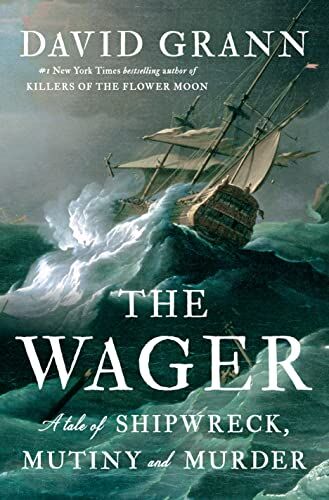BOOKS: The Wager: David Grann
Published 9:30 am Saturday, May 13, 2023

- The Wager
Historian authors/book publishers seem to have a thing for the miseries of the sea.
Maybe it’s a fascination as old and as American as Herman Melville’s “Moby Dick.” Or maybe some call of the sea that stretches back to when the world was explored by sail.
Whatever it may be, tragic tales at sea have been the focal point of more recently published history books.
Julian Sancton’s “Madhouse at the End of the Earth: The Belgica’s Journey into the Dark Antarctic Night” is a harrowing account of a ship sailing deep into the icy waters of the South Pole then becoming trapped in the frozen seas.
Historian Nathaniel Philbrick wrote of a whale attack and cannibalism at sea “In The Heart of the Sea.”
Now, David Grann chronicles the story of “The Wager: A Tale of Shipwreck, Mutiny and Murder.”
All three books deal with hardships, starvation, madness, factions, despair, death, the return to civilization and then facing the consequences of their actions.
In “The Wager,” the ship of that name is wrecked while a part of a convoy of British ships in the 1740s. The crew was already sick and thinned from one illness then crippling scurvy.
The Wager becomes separated from the convoy and wrecks off the shore of a deserted island. Survivors set up camp on the island. They immediately fall into factions. They set up shelters and splinter again as the crew gravitates more to the gunner and away from the growing tyranny of the captain.
They create a seaworthy craft, an ark, to attempt carrying them off the island. The gunner and crew want to attempt sailing to Chile. The captain wants to forge on with the original mission – involving a war with Spain – to a rendezvous point with the rest of the convoy.
Mutiny ensues.
“The Wager” is a good read which readers of Grann’s past books, such as “The Lost City of Z” and “Killers of the Flower Moon,” would expect. Good, but not as readable as those books.



